Fleurs du Mal Magazine


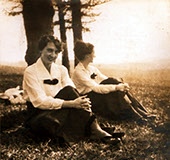
The Fugitive
Fool, fool,
They can hear thy frighted feet,
And they poke fun at thee,
Or pity thee,
Or pity thee.
They can hear thy steps retreat,
Shuffling timidly.
Thy gait is hobbling and uncouth,
For stubborn is earth’s clay;
There was a day,
There was a day,
When from the doom of its own youth,
Thy spirit stole away.
Do they not know thy spirit’s home?
Thy spirit, glancing, glides
Beneath all tides,
Beneath all tides.
It is a coral under foam;
In the cool deep it hides.
For lo, the yielding element
Of immortality
Is like the sea,
Is like the sea.
Do they not hear, in wonderment,
The tides enfolding thee?
Gladys Cromwell
(1885-1919)
The Fugitive
• fleursdumal.nl magazine
More in: Archive C-D, Cromwell, Gladys, Gladys Cromwell
Wel honderd keer is hij naar Rotterdam gereisd, op zoek naar Thija. Een paar keer per jaar. Hij heeft zich nooit los kunnen maken van de Wijer en de boottochtjes met Tijger en Thija. Die herinneringen zijn z’n intiemste bezit. Als een schatbewaarder is hij bij de Wijer blijven wonen.
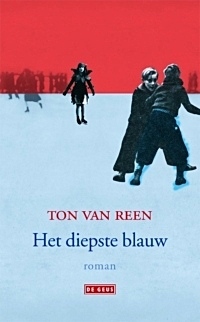 In Rotterdam heeft hij geen spoor van haar gevonden. Zijn hele leven is hij op zoek geweest naar een schim. Natuurlijk was ze anders geworden. Natuurlijk was ze net zo oud als hij en moest hij haar niet zoeken tussen de kinderen die op straat speelden, maar tussen de vrouwen in de winkels, in de trams, in de restaurants, in de opiumkitten. Bij alle vrouwen keek hij naar de knieën, op zoek naar het roze mondje op de rechterknie, maar hij vond het nooit terug. Vaak had hij er zich belachelijk door gemaakt.
In Rotterdam heeft hij geen spoor van haar gevonden. Zijn hele leven is hij op zoek geweest naar een schim. Natuurlijk was ze anders geworden. Natuurlijk was ze net zo oud als hij en moest hij haar niet zoeken tussen de kinderen die op straat speelden, maar tussen de vrouwen in de winkels, in de trams, in de restaurants, in de opiumkitten. Bij alle vrouwen keek hij naar de knieën, op zoek naar het roze mondje op de rechterknie, maar hij vond het nooit terug. Vaak had hij er zich belachelijk door gemaakt.
En haar vader? Hij had er vaak over gesproken met de heer Wong Lun Hing, die een hotelletje had waar hij altijd had overnacht. De heer Wong had overal navraag gedaan in de Chinese gemeenschap, maar geen spoor gevonden van een Lacoste die getrouwd was met een Chinese. De enige Lacoste die ze hadden kunnen ontdekken was een Fransman geweest, die een theeplantage had gehad in China en die, al wat ouder, toen hij zijn plantage aan de communisten had verloren, in Rotterdam was gaan wonen en een handel in thee had opgezet. Een thee-imperium dat handelde over de hele wereld. Hij woonde in Rotterdam en had een zoon. Navraag bij hem had niets opgeleverd.
Tot Wong Lun Hing op zekere dag had geopperd dat die heren van de thee er in hun goede tijden in China meestal bijzitten op na hielden. Buitenvrouwen. Had Lacoste zo’n buitenvrouw laten overkomen en haar ver weg van Rotterdam in een huis gezet waar hij haar af en toe bezocht?
Op eigen houtje was Mels achter Lacoste aangegaan, maar op het adres dat Wong Lun Hing had achterhaald, woonde iemand anders, iemand die alleen maar wist dat hij het huis had gekocht van een makelaar, die het te koop had aangeboden omdat de vorige eigenaar was gestorven, waarna zijn weduwe met onbekende bestemming was vertrokken.
Een dood spoor, maar wel een spoor dat veel onrust in hem had gewekt.
In een paar kranten had hij een oproep geplaatst aan Thija Lacoste, ondertekend met Mels Gommans. Nooit had hij er iets op gehoord.
Door al zijn zoektochten had hij de stad Rotterdam leren kennen. De havens, die jaar na jaar veranderden. De straten die nooit hetzelfde waren. De mensen van wie hij zich nooit een gezicht herinnerde, maar wel het rumoer dat ze maakten. De hoerenbuurt. Chinese meisjes bij de vleet. Matrozenhoeren die spaarden voor een eigen zaak, een eigen bordeel.
Telkens was hij teleurgesteld teruggekomen uit Rotterdam. Thuis was zijn eerste gang steeds naar de Wijer, waar de boot lag te verrotten in het riet. Na jaren restte er niet meer van dan het rondhout van de boeg. Hij nam het mee naar huis en bewaarde het op zolder. De laatste tastbare herinnering aan Tijger en Thija.
Sinds hij in de rolstoel zit, is hij niet meer in Rotterdam geweest.
Ton van Reen: Het diepste blauw (100)
wordt vervolgd
•fleursdumal.nl magazine
More in: - Book News, - Het diepste blauw, Archive Q-R, Reen, Ton van
A brilliant second collection by Sally Wen Mao on the violence of the spectacle ― starring the film legend Anna May Wong
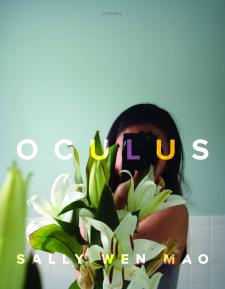 In Oculus, Sally Wen Mao explores exile not just as a matter of distance and displacement but as a migration through time and a reckoning with technology. The title poem follows a nineteen-year-old girl in Shanghai who uploaded her suicide onto Instagram.
In Oculus, Sally Wen Mao explores exile not just as a matter of distance and displacement but as a migration through time and a reckoning with technology. The title poem follows a nineteen-year-old girl in Shanghai who uploaded her suicide onto Instagram.
Other poems cross into animated worlds, examine robot culture, and haunt a necropolis for electronic waste. A fascinating sequence spanning the collection speaks in the voice of the international icon and first Chinese American movie star Anna May Wong, who travels through the history of cinema with a time machine, even past her death and into the future of film, where she finds she has no progeny.
With a speculative imagination and a sharpened wit, Mao powerfully confronts the paradoxes of seeing and being seen, the intimacies made possible and ruined by the screen, and the many roles and representations that women of color are made to endure in order to survive a culture that seeks to consume them.
I will blow a hole
in the airwaves, duck lasers in my dugout.
I’m done kidding them. Today I fly
the hell out in my Chrono-Jet.
To the future, where I’m forgotten.
(from “Anna May Wong Fans Her Time Machine”)
“The poems in Oculus are rangy, protean, contradictory. They offer an alternative to the selfie, that static reduction of a person to her most photogenic poses.”— The New Yorker
Sally Wen Mao is the author of a previous poetry collection, Mad Honey Symposium. Her work has won a Pushcart Prize and fellowships at Kundiman, George Washington University, and the New York Public Library Cullman Center.
Oculus: Poems
by Sally Wen Mao (Author)
Paperback
96 pages
January 15, 2019
Publisher: Graywolf Press
Language: English
Subject: Poetry
ISBN-10: 1555978258
ISBN-13: 978-1555978259
Product Dimensions: 6.9 x 0.4 x 9.1 inches
$16.00
# more poetry
Sally Wen Mao
Oculus
• fleursdumal.nl magazine
More in: - Book News, Archive M-N, Archive M-N, Art & Literature News
De Vlaamse televisiemaker, muzikant en schrijver Jan Leyers (1958) is de winnaar van de E. du Perronprijs 2018.
 De jury honoreert zijn boek Allah in Europa: reisverslag van een ongelovige. Volgens de jury een: ‘fascinerend boek waarin een veelheid aan ideeën en opinies aan de orde komt, waaraan de lezer zijn of haar eigen mening kan scherpen’.
De jury honoreert zijn boek Allah in Europa: reisverslag van een ongelovige. Volgens de jury een: ‘fascinerend boek waarin een veelheid aan ideeën en opinies aan de orde komt, waaraan de lezer zijn of haar eigen mening kan scherpen’.
De andere genomineerden voor de prijs waren Ilja Leonard Pfeijffer met Grand Hotel Europa en Jolande Withuis Raadselvader.
Leyers krijgt 2500 euro voor de E. du Perronprijs, een initiatief van de gemeente Tilburg, de Tilburg School of Humanities & Digital Sciences van de Tilburgse universiteit en de organisatie Kunstloc Brabant.
E. du Perronprijs 2018 voor het boek Allah in Europa: reisverslag van een ongelovige van Jan Leyers
• fleursdumal.nl magazine
More in: - Book News, - Book Stories, Archive K-L, Art & Literature News, Awards & Prizes, MONTAIGNE, PRESS & PUBLISHING, WAR & PEACE
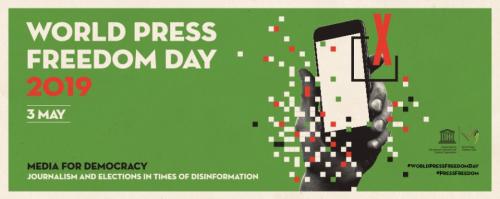
Every year, 3 May is a date which celebrates the fundamental principles of press freedom, to evaluate press freedom around the world, to defend the media from attacks on their independence and to pay tribute to journalists who have lost their lives in the exercise of their profession.
World Press Freedom Day was proclaimed by the UN General Assembly in 1993 following a Recommendation adopted at the twenty-sixth session of UNESCO‘s General Conference in 1991. This in turn was a response to a call by African journalists who in 1991 produced the landmark Windhoek Declaration (link is external) on media pluralism and independence.
At the core of UNESCO’s mandate is freedom of the press and freedom of expression. UNESCO believes that these freedoms allow for mutual understanding to build a sustainable peace.
It serves as an occasion to inform citizens of violations of press freedom – a reminder that in dozens of countries around the world, publications are censored, fined, suspended and closed down, while journalists, editors and publishers are harassed, attacked, detained and even murdered.
It is a date to encourage and develop initiatives in favour of press freedom, and to assess the state of press freedom worldwide.
3 May acts as a reminder to governments of the need to respect their commitment to press freedom and is also a day of reflection among media professionals about issues of press freedom and professional ethics. Just as importantly, World Press Freedom Day is a day of support for media which are targets for the restraint, or abolition, of press freedom. It is also a day of remembrance for those journalists who lost their lives in the pursuit of a story.
WORLD PRESS FREEDOM DAY
May 3, 2019
# more information website unesco
• fleursdumal.nl magazine
More in: - Book Stories, Art & Literature News, AUDIO, CINEMA, RADIO & TV, LITERARY MAGAZINES, Photography, PRESS & PUBLISHING, REPRESSION OF WRITERS, JOURNALISTS & ARTISTS

Alle bomen in het woud
Wolfgrijs zwaar als naamloze nachten
versteende wachtwoorden. Alles begint
en eindigt met verhalen. Over verborgen
offers bijvoorbeeld. Of de vraag: ‘Ben je
als je droomt iedereen?’ Ken je dan van
de wind het geheim? Waait het dan stil?
Alle bomen in het woud is ons land.
Bert Bevers
Alle bomen in het woud
Verschenen in de catalogus Enghuizer Dialogen 2015, Hummelo, 2015
Bert Bevers is a poet and writer who lives and works in Antwerp (Be)
• fleursdumal.nl magazine
More in: Archive A-B, Archive A-B, Bevers, Bert
In materials as diverse as wood, steel, bronze, latex, marble, plaster, resin, hemp, lead, ink, pencil, crayon, woodcut, watercolor and gouache, Louise Bourgeois (1911–2010) investigates every imaginable manifestation of the spiral, from graphic patterns to graphite whorls, wobbly orbits to chiseled vortices, twisted columns to coiling snakes, staircases and pyramids.
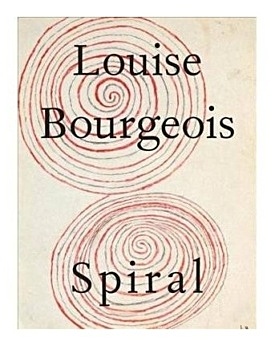 The cursive blue-paper word drawings also included, in English and French, complement the purely visual works by conveying the spirit of Bourgeois’ writing in extraordinary pictorial forms.
The cursive blue-paper word drawings also included, in English and French, complement the purely visual works by conveying the spirit of Bourgeois’ writing in extraordinary pictorial forms.
Bourgeois called the spiral “an attempt at controlling the chaos. It has two directions. Where do you place yourself, at the periphery or at the vortex?”
In another context, she has also stated “I would dream of my father’s mistress. I would do it in my dreams by wringing her neck.
The spiral—I love the spiral—represents control and freedom.”
Louise Bourgeois:
Spiral
Text by Louise Bourgeois (Artist)
Hardcover
84 pages
Publisher: Damiani
(February 19, 2019)
Language: English
ISBN-10: 886208644X
ISBN-13: 978-8862086448
Product Dimensions: 9.2 x 0.8 x 12 inches
$50.00
# new book
Louise Bourgeois
Spiral
• fleursdumal.nl magazine
More in: - Book News, - Bookstores, Archive A-B, Art & Literature News, Louise Bourgeois, Sculpture
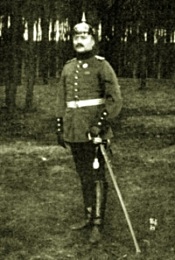
Siede
Meine Schwäche hält sich mühsam
An den eigenen Händen
Mit meinen Kräften
Spielen deine Knöchel
Fangeball!
In deinem Schreiten knistert
Hin
Mein Denken
Und
Dir im Auggrund
Stirbt
Mein letztes Will!
Dein Hauch zerweht mich
Schreivoll in Verlangen
Kühl
Kränzt dein Tändeln
In das Haar
Sich
Lächelnd
Meine Qual!
August Stramm
(1874-1915)
Siede, 1914
• fleursdumal.nl magazine
More in: *War Poetry Archive, Archive S-T, Expressionism, Stramm, August
A MATTER OF DOCTRINE
There was great excitement in Miltonville over the advent of a most eloquent and convincing minister from the North.
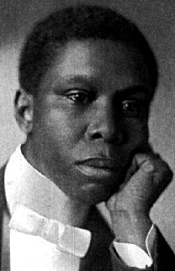 The beauty about the Rev. Thaddeus Warwick was that he was purely and simply a man of the doctrine. He had no emotions, his sermons were never matters of feeling; but he insisted so strongly upon the constant presentation of the tenets of his creed that his presence in a town was always marked by the enthusiasm and joy of religious disputation.
The beauty about the Rev. Thaddeus Warwick was that he was purely and simply a man of the doctrine. He had no emotions, his sermons were never matters of feeling; but he insisted so strongly upon the constant presentation of the tenets of his creed that his presence in a town was always marked by the enthusiasm and joy of religious disputation.
The Rev. Jasper Hayward, coloured, was a man quite of another stripe. With him it was not so much what a man held as what he felt. The difference in their characteristics, however, did not prevent him from attending Dr. Warwick’s series of sermons, where, from the vantage point of the gallery, he drank in, without assimilating, that divine’s words of wisdom.
Especially was he edified on the night that his white brother held forth upon the doctrine of predestination. It was not that he understood it at all, but that it sounded well and the words had a rich ring as he champed over them again and again.
Mr. Hayward was a man for the time and knew that his congregation desired something new, and if he could supply it he was willing to take lessons even from a white co-worker who had neither “de spi’it ner de fiah.” Because, as he was prone to admit to himself, “dey was sump’in’ in de unnerstannin’.”
He had no idea what plagiarism is, and without a single thought of wrong, he intended to reproduce for his people the religious wisdom which he acquired at the white church. He was an innocent beggar going to the doors of the well-provided for cold spiritual victuals to warm over for his own family. And it would not be plagiarism either, for this very warming-over process would save it from that and make his own whatever he brought. He would season with the pepper of his homely wit, sprinkle it with the salt of his home-made philosophy, then, hot with the fire of his crude eloquence, serve to his people a dish his very own. But to the true purveyor of original dishes it is never pleasant to know that someone else holds the secret of the groundwork of his invention.
It was then something of a shock to the Reverend Mr. Hayward to be accosted by Isaac Middleton, one of his members, just as he was leaving the gallery on the night of this most edifying of sermons.
Isaac laid a hand upon his shoulder and smiled at him benevolently.
“How do, Brothah Hayward,” he said, “you been sittin’ unner de drippin’s of de gospel, too?”
“Yes, I has been listenin’ to de wo’ds of my fellow-laborah in de vineya’d of de Lawd,” replied the preacher with some dignity, for he saw vanishing the vision of his own glory in a revivified sermon on predestination.
Isaac linked his arm familiarly in his pastor’s as they went out upon the street.
“Well, what you t’ink erbout pre-o’dination an’ fo’-destination any how?”
“It sutny has been pussented to us in a powahful light dis eve’nin’.”
“Well, suh, hit opened up my eyes. I do’ know when I’s hyeahed a sehmon dat done my soul mo’ good.”
“It was a upliftin’ episode.”
“Seem lak ‘co’din’ to de way de brothah ‘lucidated de matter to-night dat evaht’ing done sot out an’ cut an’ dried fu’ us. Well dat’s gwine to he’p me lots.”
“De gospel is allus a he’p.”
“But not allus in dis way. You see I ain’t a eddicated man lak you, Brothah Hayward.”
“We can’t all have de same ‘vantages,” the preacher condescended. “But what I feels, I feels, an’ what I unnerstan’s, I unnerstan’s. The Scripture tell us to get unnerstannin’.”
“Well, dat’s what I’s been a-doin’ to-night. I’s been a-doubtin’ an’ a-doubtin’, a-foolin’ erroun’ an’ wonderin’, but now I unnerstan’.”
“‘Splain yo’se’f, Brothah Middleton,” said the preacher.
“Well, suh, I will to you. You knows Miss Sally Briggs? Huh, what say?”
The Reverend Hayward had given a half discernible start and an exclamation had fallen from his lips.
“What say?” repeated his companion.
“I knows de sistah ve’y well, she bein’ a membah of my flock.”
“Well, I been gwine in comp’ny wit dat ooman fu’ de longes’. You ain’t nevah tasted none o’ huh cookin’, has you?”
“I has ‘sperienced de sistah’s puffo’mances in dat line.”
“She is the cookin’est ooman I evah seed in all my life, but howsomedever, I been gwine all dis time an’ I ain’ nevah said de wo’d. I nevah could git clean erway f’om huh widout somep’n’ drawin’ me back, an’ I didn’t know what hit was.”
The preacher was restless.
“Hit was des dis away, Brothah Hayward, I was allus lingerin’ on de brink, feahful to la’nch away, but now I’s a-gwine to la’nch, case dat all dis time tain’t been nuffin but fo’-destination dat been a-holdin’ me on.”
“Ahem,” said the minister; “we mus’ not be in too big a hu’y to put ouah human weaknesses upon some divine cause.”
“I ain’t a-doin’ dat, dough I ain’t a-sputin’ dat de lady is a mos’ oncommon fine lookin’ pusson.”
“I has only seed huh wid de eye of de spi’it,” was the virtuous answer, “an’ to dat eye all t’ings dat are good are beautiful.”
“Yes, suh, an’ lookin’ wid de cookin’ eye, hit seem lak’ I des fo’destinated fu’ to ma’y dat ooman.”
“You say you ain’t axe huh yit?”
“Not yit, but I’s gwine to ez soon ez evah I gets de chanst now.”
“Uh, huh,” said the preacher, and he began to hasten his steps homeward.
“Seems lak you in a pow’ful hu’y to-night,” said his companion, with some difficulty accommodating his own step to the preacher’s masterly strides. He was a short man and his pastor was tall and gaunt.
“I has somp’n’ on my min,’ Brothah Middleton, dat I wants to thrash out to-night in de sollertude of my own chambah,” was the solemn reply.
“Well, I ain’ gwine keep erlong wid you an’ pestah you wid my chattah, Brothah Hayward,” and at the next corner Isaac Middleton turned off and went his way, with a cheery “so long, may de Lawd set wid you in yo’ meddertations.”
“So long,” said his pastor hastily. Then he did what would be strange in any man, but seemed stranger in so virtuous a minister. He checked his hasty pace, and, after furtively watching Middleton out of sight, turned and retraced his steps in a direction exactly opposite to the one in which he had been going, and toward the cottage of the very Sister Griggs concerning whose charms the minister’s parishioner had held forth.
It was late, but the pastor knew that the woman whom he sought was industrious and often worked late, and with ever increasing eagerness he hurried on. He was fully rewarded for his perseverance when the light from the window of his intended hostess gleamed upon him, and when she stood in the full glow of it as the door opened in answer to his knock.
“La, Brothah Hayward, ef it ain’t you; howdy; come in.”
“Howdy, howdy, Sistah Griggs, how you come on?”
“Oh, I’s des tol’able,” industriously dusting a chair. “How’s yo’se’f?”
“I’s right smaht, thankee ma’am.”
“W’y, Brothah Hayward, ain’t you los’ down in dis paht of de town?”
“No, indeed, Sistah Griggs, de shep’erd ain’t nevah los’ no whaih dey’s any of de flock.” Then looking around the room at the piles of ironed clothes, he added: “You sutny is a indust’ious ooman.”
“I was des ’bout finishin’ up some i’onin’ I had fu’ de white folks,” smiled Sister Griggs, taking down her ironing-board and resting it in the corner. “Allus when I gits thoo my wo’k at nights I’s putty well tiahed out an’ has to eat a snack; set by, Brothah Hayward, while I fixes us a bite.”
“La, sistah, hit don’t skacely seem right fu’ me to be a-comin’ in hyeah lettin’ you fix fu’ me at dis time o’ night, an’ you mighty nigh tuckahed out, too.”
“Tsch, Brothah Hayward, taint no ha’dah lookin’ out fu’ two dan it is lookin’ out fu’ one.”
Hayward flashed a quick upward glance at his hostess’ face and then repeated slowly, “Yes’m, dat sutny is de trufe. I ain’t nevah t’ought o’ that befo’. Hit ain’t no ha’dah lookin’ out fu’ two dan hit is fu’ one,” and though he was usually an incessant talker, he lapsed into a brown study.
Be it known that the Rev. Mr. Hayward was a man of a very level head, and that his bachelorhood was a matter of economy. He had long considered matrimony in the light of a most desirable estate, but one which he feared to embrace until the rewards for his labours began looking up a little better. But now the matter was being presented to him in an entirely different light. “Hit ain’t no ha’dah lookin’ out fu’ two dan fu’ one.” Might that not be the truth after all. One had to have food. It would take very little more to do for two. One had to have a home to live in. The same house would shelter two. One had to wear clothes. Well, now, there came the rub. But he thought of donation parties, and smiled. Instead of being an extravagance, might not this union of two beings be an economy? Somebody to cook the food, somebody to keep the house, and somebody to mend the clothes.
His reverie was broken in upon by Sally Griggs’ voice. “Hit do seem lak you mighty deep in t’ought dis evenin’, Brothah Hayward. I done spoke to you twicet.”
“Scuse me, Sistah Griggs, my min’ has been mighty deeply ‘sorbed in a little mattah o’ doctrine. What you say to me?”
“I say set up to the table an’ have a bite to eat; tain’t much, but ‘sich ez I have’—you know what de ‘postle said.”
The preacher’s eyes glistened as they took in the well-filled board. There was fervour in the blessing which he asked that made amends for its brevity. Then he fell to.
Isaac Middleton was right. This woman was a genius among cooks. Isaac Middleton was also wrong. He, a layman, had no right to raise his eyes to her. She was the prize of the elect, not the quarry of any chance pursuer. As he ate and talked, his admiration for Sally grew as did his indignation at Middleton’s presumption.
Meanwhile the fair one plied him with delicacies, and paid deferential attention whenever he opened his mouth to give vent to an opinion. An admirable wife she would make, indeed.
At last supper was over and his chair pushed back from the table. With a long sigh of content, he stretched his long legs, tilted back and said: “Well, you done settled de case ez fur ez I is concerned.”
“What dat, Brothah Hayward?” she asked.
“Well, I do’ know’s I’s quite prepahed to tell you yit.”
“Hyeah now, don’ you remembah ol’ Mis’ Eve? Taint nevah right to git a lady’s cur’osity riz.”
“Oh, nemmine, nemmine, I ain’t gwine keep yo’ cur’osity up long. You see, Sistah Griggs, you done ‘lucidated one p’int to me dis night dat meks it plumb needful fu’ me to speak.”
She was looking at him with wide open eyes of expectation.
“You made de ’emark to-night, dat it ain’t no ha’dah lookin’ out aftah two dan one.”
“Oh, Brothah Hayward!”
“Sistah Sally, I reckernizes dat, an’ I want to know ef you won’t let me look out aftah we two? Will you ma’y me?”
She picked nervously at her apron, and her eyes sought the floor modestly as she answered, “Why, Brothah Hayward, I ain’t fittin’ fu’ no sich eddicated man ez you. S’posin’ you’d git to be pu’sidin’ elder, er bishop, er somp’n’ er othah, whaih’d I be?”
He waved his hand magnanimously. “Sistah Griggs, Sally, whatevah high place I may be fo’destined to I shall tek my wife up wid me.”
This was enough, and with her hearty yes, the Rev. Mr. Hayward had Sister Sally close in his clerical arms. They were not through their mutual felicitations, which were indeed so enthusiastic as to drown the sound of a knocking at the door and the ominous scraping of feet, when the door opened to admit Isaac Middleton, just as the preacher was imprinting a very decided kiss upon his fiancee’s cheek.
“Wha’—wha'” exclaimed Middleton.
The preacher turned. “Dat you, Isaac?” he said complacently. “You must ‘scuse ouah ‘pearance, we des got ingaged.”
The fair Sally blushed unseen.
“What!” cried Isaac. “Ingaged, aftah what I tol’ you to-night.” His face was a thundercloud.
“Yes, suh.”
“An’ is dat de way you stan’ up fu’ fo’destination?”
This time it was the preacher’s turn to darken angrily as he replied, “Look a-hyeah, Ike Middleton, all I got to say to you is dat whenevah a lady cook to please me lak dis lady do, an’ whenevah I love one lak I love huh, an’ she seems to love me back, I’s a-gwine to pop de question to huh, fo’destination er no fo’destination, so dah!”
The moment was pregnant with tragic possibilities. The lady still stood with bowed head, but her hand had stolen into her minister’s. Isaac paused, and the situation overwhelmed him. Crushed with anger and defeat he turned toward the door.
On the threshold he paused again to say, “Well, all I got to say to you, Hayward, don’ you nevah talk to me no mor’ nuffin’ ’bout doctrine!”
Paul Laurence Dunbar
(1872 – 1906)
A Matter Of Doctrine
From The Heart Of Happy Hollow, a collection of short stories reprinted in 1904 by Dodd, Mead and Company, New York.
Short Story
• fleursdumal.nl magazine
More in: *Archive African American Literature, Archive C-D, Archive C-D, Dunbar, Paul Laurence, Dunbar, Paul Laurence, Paul Laurence Dunbar, Paul Laurence Dunbar
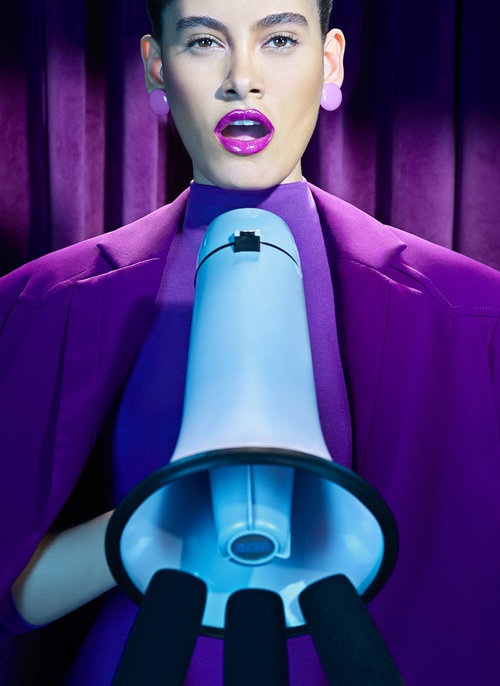
Pol Kurucz: Politicas
“Politicas” (non existant female version of “Politicos”, meaning politician in latin languages) promotes the role of women in politics via provocative scenes in which each “Politica” campaigns in her own, witty way.
Pol Kurucz was born with two different names to a French mother in a Hungarian hospital. His childhood hyperactivity was treated with theater, and theater was later treated with finance. By 27 he was a manager by day and a stage director by night. He then went on consecutive journeys to Bahrain and Brazil, to corporate islands and favelas. He has sailed on the shores of the adult industry and of militant feminism and launched a mainstream money making bar loss making in its indie art basement. Then he suddenly died of absurdity. Pol was reborn in 2015 and merged his two names and his contradictory lives into one where absurdity makes sense.
Today he works on eccentric fashion, celebrity and fine art projects in São Paulo and New York. His photos have been featured in over a hundred publications including: Vogue, ELLE, Glamour, Marie Claire, The Guardian, Dazed, Adobe Create, Hunger, Sleek, Nylon, Hi-Fructose, Galore. Pol’s works were exhibited worldwide in 72 galleries and cultural events in 2018 including: Juxtapoz Club House (Art Basel Miami), ArtExpo NYC, Red Dot Miami, Lincoln Center NYC, Shanghai Fashion Week, New York Fashion Week, Superchief Gallery Miami, Lumas Galleries worldwide, Democrart Galleries in Brazil and Pica Photo shows in China.
# more on website pol kurucz
www.polkurucz.com (politicas: www.polkurucz.com/politicas)
• fleursdumal.nl magazine
More in: Art & Literature News, FDM Art Gallery, Photography, Pol Kurucz, Surrealisme, THEATRE
The dramatic, larger-than-life true story behind the founding of Oculus and its quest for virtual reality, by the bestselling author of Console Wars.
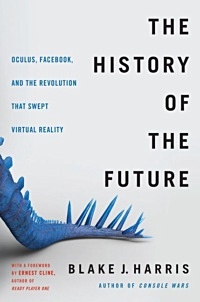 In The History of the Future, Harris once again deep-dives into a tech drama for the ages to expertly tell the larger-than-life true story of Oculus, the virtual reality company founded in 2012 that—less than two years later—would catch the attention of Mark Zuckerberg and wind up being bought by Facebook for over $2 billion dollars.
In The History of the Future, Harris once again deep-dives into a tech drama for the ages to expertly tell the larger-than-life true story of Oculus, the virtual reality company founded in 2012 that—less than two years later—would catch the attention of Mark Zuckerberg and wind up being bought by Facebook for over $2 billion dollars.
This incredible underdog story begins with inventor Palmer Luckey, then just a nineteen-year-old dreamer, living alone in a camper trailer in Long Beach, California. At the time, virtual reality—long-hailed as the ultimate technology—was so costly and experimental that it was unattainable outside of a few research labs and military training facilities. But with the founding of Oculus, and the belief that his tantalizing vision of the future could one day be more than science fiction, Luckey put everything he had into creating a device that would allow gamers like him to step into virtual worlds and, in doing so, hopefully kickstart a VR revolution.
Over the course of three years, Harris conducted hundreds of interviews with key players in the VR revolution—including Luckey, his partners, and their cult of dreamers—to weave together a rich, cinematic narrative that captures the breakthroughs, breakdowns, and human drama of trying to change the world.
The result is a supremely accessible, entertaining look at the birth of a new multi-billion-dollar industry; one full of heroes, villains, and twists at every corner. Take, for instance, Harris’ own discovery while writing this story. When he started this endeavor, he had no idea that this tale would somehow involve Donald Trump, billion-dollar lawsuits, illegal practices, and end with Luckey—eventually ousted from Facebook—as one of the most polarizing figures in Silicon Valley.
The History of the Future.
Oculus, Facebook, and the Revolution That Swept Virtual Reality
by Blake J. Harris
Hardcover
Pages: 528
HarperCollins Publishers
Imprint: Dey Street Books
On Sale: 02/19/2019
ISBN: 9780062455963
ISBN 10: 0062455966
Computers / Virtual Worlds
List Price: 28.99 USD
# new books
The History of the Future
Blake J. Harris
• fleursdumal.nl magazine
More in: - Book News, Archive G-H, Art & Literature News, AUDIO, CINEMA, RADIO & TV, Exhibition Archive, Photography, Visual & Concrete Poetry
Thija komt buiten met haar reistas. Ze heeft een mantelpakje aan, lichtgrijs, rood afgebiesd. Ze ziet eruit als een dochter van een deftige familie, die naar kostschool vertrekt. Ze heeft een strik in het haar, net als op zondag wanneer ze naar de kerk gaat.
 Ze zet de reistas op de grond en gaat erop zitten. Haar onmogelijk lange rok hangt op het trottoir, zodat ze hem wat op moet trekken.
Ze zet de reistas op de grond en gaat erop zitten. Haar onmogelijk lange rok hangt op het trottoir, zodat ze hem wat op moet trekken.
Mels gaat op de stoep zitten, aan de andere kant van de straat, want hij is ontzettend boos.
Thija vijlt haar nagels.
`Hou op met dat gedoe’, zegt hij boos.
`Ik schrijf je toch’, zegt Thija. `Ik vergeet je echt niet.’
`Weet je nu waar je gaat wonen?’
`Rotterdam, dat zei ik toch. Ik schrijf je volgende week al. Elke week schrijf ik.’
Er rijdt een auto door de straat, langzaam. Passeert hen. Even is ze uit zijn ogen weg. Dat even doet al pijn.
`Ik heb een cadeau voor je.’
`Wat is het?’ vraagt hij.
`Kom het maar halen.’
`Je moet het me brengen.’
Blijkbaar hoort ze aan zijn toon dat hij niet toe zal geven, zeker niet nu hij zo geweldig boos is over het afscheid. Ze staat op en steekt de straat over. De rok hangt bijna op haar schoenen. De neuzen glimmen.
Uit haar reistas pakt ze een doosje, met een lint eromheen.
`Je mag het pas uitpakken als ik weg ben.’
`Goed.’
Hij neemt het pakje aan en steekt het in zijn zak.
Ze komt naast hem zitten. Even is het alsof er niets aan de hand is, alsof ze een spelletje gaan doen dat de hele dag zal duren. Zoals ze het zo vaak gedaan hebben. Raden waar je naar kijkt. De stemmen van voorbijgangers nadoen. Of gewoon verhalen vertellen.
Haar moeder komt buiten en zet een paar dozen met huisraad op de stoep.
`Nemen jullie niet alles mee?’
`De koffers worden later opgehaald. Ze zijn nooit uitgepakt. Eigenlijk hebben we er niets van nodig. Voorlopig gaan we in een hotel wonen, tot we een huis hebben gevonden.’
Ze slaat een arm om hem heen. Hij voelt hoe warm haar arm is, ook al is die nog zo dun. Haar huid is van zijde.
`Ik wil liever blijven’, zegt ze. `Ik vind het net zo erg als jij. Maar het kan niet. Als je ouders verhuizen, moet je mee.’
Een auto rijdt voor en stopt voor haar deur. Thija’s vader stapt uit. Mels heeft hem nog nooit gezien. Hij schrikt een beetje van hem. Het is een oudere, forse en grijze man. Niet veel jonger dan zijn grootvader. Niet de vader die hij had verwacht. De man groet hem niet, hij kijkt gewoon over hem heen. Het is een man die het druk heeft, dat kun je zo aan hem zien. Daarom neemt hij hen nu mee naar Rotterdam, om hen vaker te zien. Mels snapt het, maar het is niet eerlijk.
Haar vader laadt de dozen in de achterbak en klopt het stof van zijn handen.
Mels voelt de tranen langs zijn wangen lopen.
`Niet doen’, zegt ze. `Ik schrijf je toch. Ik schrijf je alles wat ik nog over China weet.’
`Je gaat naar Rotterdam!’
`Kom op, we hebben weinig tijd’, zegt haar moeder. `Je moet nu afscheid nemen.’ Ze strijkt Mels over het haar en loopt naar de auto.
`Nou, ik moet gaan.’ Thija staat op en geeft hem een kus.
Door zijn tranen heen ziet Mels haar in de auto stappen. Hij ziet hoe die stomme rok van haar even blijft haken. Ze valt bijna de auto in. Als hij een pistool had zou hij haar vader doodschieten. Maar misschien ook niet. Hij weet het niet. Hij is verlamd. Hij zou niet eens kunnen schieten.
De auto rijdt de straat uit. Ze zwaait. Hij wil terugzwaaien, maar het gaat niet. Hij is versteend. Het liefst was hij dood.
Pas als de auto al een uur weg is, of misschien wel twee uur, gaat hij naar huis.
Op zijn kamer pakt hij het cadeautje uit. Het is papier over papier. Laag na laag. Het pakje wordt steeds kleiner. Ten slotte blijft er een klein velletje van een kladblok over.
`Misschien gaan we zo ver weg dat ik je nooit meer zal zien’, leest hij. `We blijven maar even in Rotterdam. Een paar dagen, of een paar weken. Dan vertrekken we naar China, waar mijn vader op een theeplantage gaat werken. Ik weet niet eens in welk China. Hij zegt er niets over tegen mij, maar ik denk dat hij Formosa bedoelt. Meer weet ik er ook niet van. Misschien kom ik later naar Nederland terug, om te studeren. Ik moest dit opschrijven, want ik kon het je niet vertellen omdat ik zelf niet wil dat het gebeurt. Ik wil niet zonder jou naar China. Maar ook al zou ik je nooit meer zien, je moet weten dat ik altijd net zo veel van jou zal houden als van Tijger. Thija.’
Liggend op bed perst hij zijn hoofd zo vast in het kussen dat alles zwart wordt. Hij wil net zo dood zijn als Tijger.
Ton van Reen: Het diepste blauw (099)
wordt vervolgd
• fleursdumal.nl magazine
More in: - Book News, - Het diepste blauw, Archive Q-R, Reen, Ton van
Thank you for reading Fleurs du Mal - magazine for art & literature